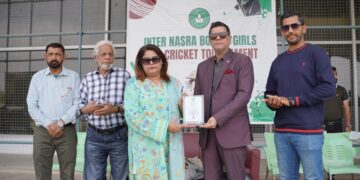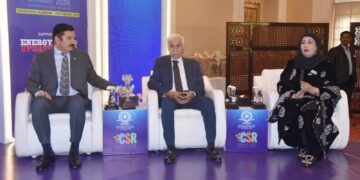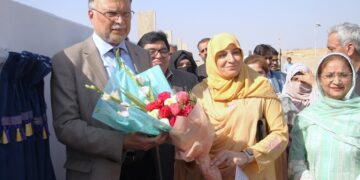KARACHI – Prime Minister Imran Khan is determined to ensure that business and employment friendly labor laws are enacted so that both employers and workers can actively contribute towards productive enhancement, quality of work, sustainable development, increased workers benefit and privileges as well as substantial corporate profitability. I compliment the Employers’ Federation of Pakistan for its proactive and constructive role in inspiring private sector in shaping the optimum human resource utilization.” This was stated by Governor of Sindh Mr Imran Ismail at the concluding session of Employers’ Federation of Pakistan International HR Conference and Awards 2019.
The Governor further added that priority will be given to employment education, skill development, vocational training and meaningful utilization of human resources so that Pakistan attains substantial socio-economic growth.
Majyd Aziz, President EFP in his welcome address quoted the world bank report 2019-20 that suggests that investment in human capital is fundamental to sustain and progressively enhance economic growth. He emphasized upon the Government to put in place long term and consistent fiscal, industrial and labor policies that can provide a conducive climate for foreign and domestic investment as well as providing a level playing field for business competitiveness. He further called upon the Government to realistic policies that can promote digital technology, global connectivity, broad based use of artificial intelligence so that these could have a positive impact on youth and women employment and future of work.
During the morning session, eminent global speakers and consultants such as Ronald Thomas from USA and Mir Mehdi Ali from UK dwelt on the Future of Human Resource and Digital Human Resource. Mr Thomas stressed that there are key features that HR practitioners must seriously address. These are the future of the workplace, future of the enterprise and the future of how work gets done. He also said that the HR management is like a lever that propels the enterprise to achieve positive financial results. He termed the Head of the HR division in any enterprise as the “Organizational Architect”.
Mir Mehdi Ali said that in his opinion even the HR people in an organization have the opportunity to create entrepreneurship. He advised the audience that to be a successful HR manager, one should build trust, believe in peer learning and coaching, continuous communication, prudently manage reports and performances, sincerely develop others in the organizations, and foster innovation and agility. He ended his presentation with the comment that in the next few years CPEC may create up to 3 million jobs. He asked whether the HR people in Pakistan are ready to get these jobs filled with trained and skilled workforce.
Mr Umair Jaliawala, a well-known motivational speaker in his discourse emphasized upon the use of artificial intelligence and emotional intelligence as future practical tools in managing and developing people in an enterprise. He added that usage of these tools requires a new thinking not only among the workforce and managerial staff but also the Board of Directors. He cautioned that is slow scaling up of introducing these tools would hamper the growth, sustainability and profit of any enterprise.
A panel discussion on ‘Impact of Economic Initiatives on HR’ was held where four CEOs representing varied sectors participated and attempted to respond to the question of how CPEC would impact on the economy of the country. They advised that it is a good sign that the mindset of the Government, bureaucracy, as well as the private sector is changing towards the new business environment. It is also worthwhile to mention that there is a very serious effort to improve the rating of ease of doing business. The foreign investors are gradually becoming more confident and that they have a positive outlook on investing in Pakistan.
The second panel discussion of seven senior HR practitioners talked about Win Win HR Practices which they can develop in responding to the business challenges confronting enterprises in the future. They provided their input through personal examples and the efforts they made in their organizations to bring about fundamental changes in the role of human resource in their role as strategic business partners in their enterprises. They emphasized that in every enterprise there should be an institutionalized network to share ideas both innovative and transformational so that an enlightened enterprise environment is a possibility.


















